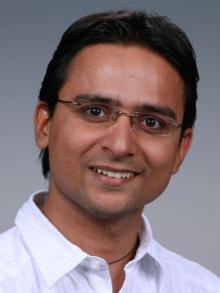Leadership Team
 | Marisa DeCillis |
 | Jerry Cochran |
 | Karan Kalsi |
 | Thomas Edgar |
 | Veronica Adetola |
 | Kevin Schneider |
Principal Investigators
 | Rohit Atul Jinsiwale |
 | Theora Rice |
 | Sumit Purohit |
 | Shwetha Niddodi |
 | Sai Pushpak Nandanoori |
 | Sai Pushpak Nandanoori |
 | Long Vu |
 | Thiagarajan Ramachandran |
Past Principal Investigators
 | Kristine Arthur-Durett |
 | Soumya Kundu |
 | Wei Du |
External Advisory Committee
- Dr. Anuradha Annaswamy, Senior Research Scientist, Massachusetts Institute of Technology
- Jean Bélanger, Co-founder, CEO, and CTO of OPAL-RT Technologies
- Christopher Butera, Senior Technical Director for the Cybersecurity Division of the Cybersecurity and Infrastructure Security Agency (CISA)
- Jerry Dixon, Former Chief Information Security Officer, CrowdStrike
- Sandra Finan, Retired Major General United States Air Force; Advisor, Pacific Northwest National Laboratory
- Dr. Jessica Inman, Division Chief of the Assured Software and Information Division and Senior Research Scientist in the Cybersecurity, Information Protection, and Hardware Evaluation Research Laboratory, Georgia Tech Research Institute
- Dr. Stuart Laval, Global Engineering Director, Distributed Energy Resource Management Systems Center of Excellence, Eaton
- Philip Quade, COO, Evolution Equity
- Dr. Jess Smith, Senior Cybersecurity Research Scientist, Pacific Northwest National Laboratory
- Bobbie Stempfley, Executive Leader overseeing product and service security, Dell Technologies
- David Isaac Toledo, Senior Manager of Cyber-Physical Mission R&D, Sandia National Laboratories